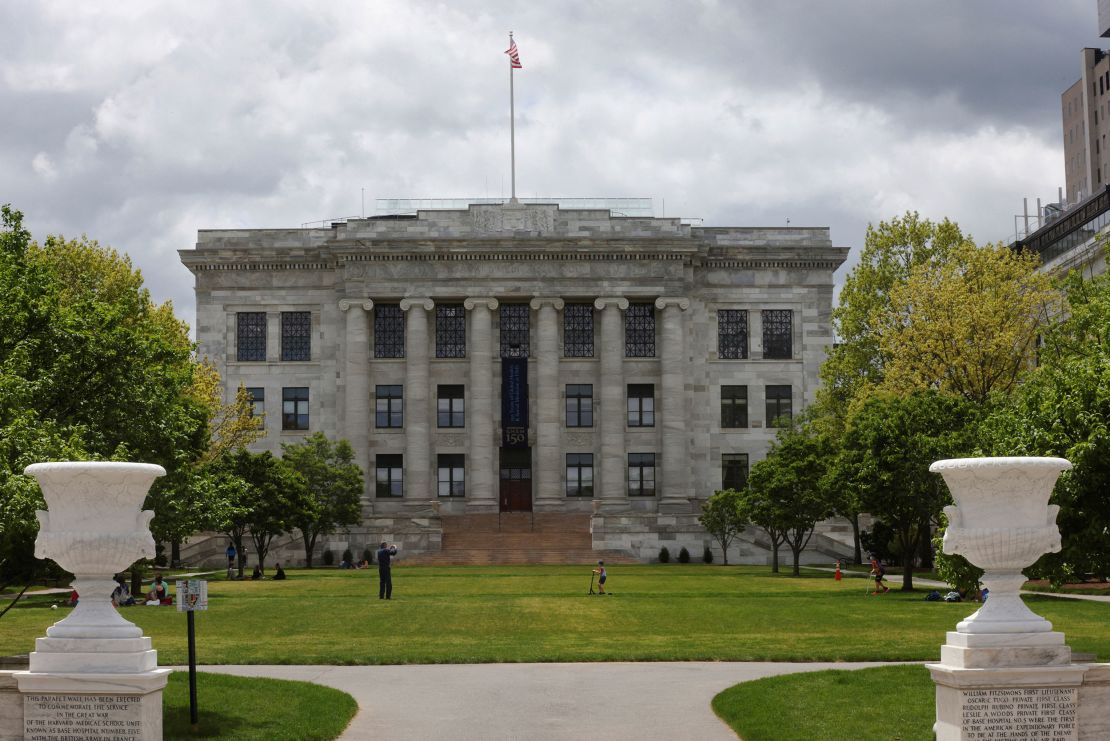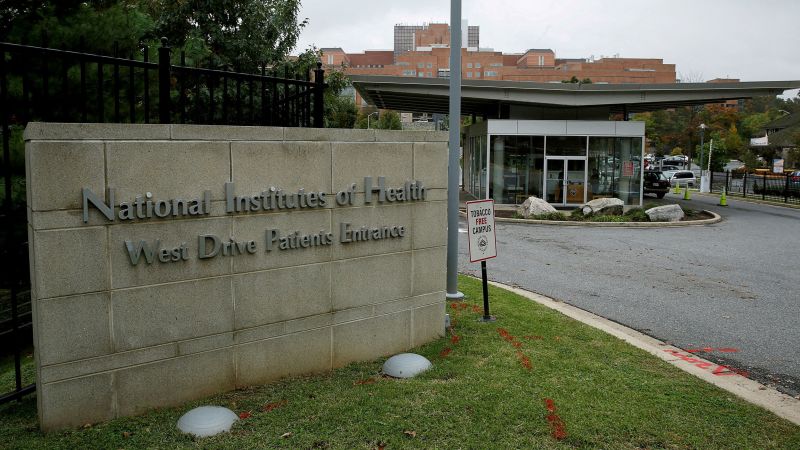CNN
—
The National Institutes of Health says it will pull medical research funding from universities with diversity and inclusion programs and any boycotts of Israeli companies, according to a policy note issued Monday.
The agency “reserves the right to terminate financial assistance awards and recover all funds” if grant recipients do not comply with federal guidelines barring diversity and equity research and “prohibited boycotts,” the notice stated.
The policy applies to “domestic recipients of new, renewal, supplement, or continuation awards” issued starting April 21, the notice said.
The directive mirrors funding freezes the Trump administration placed on Harvard and Columbia universities over DEI programs and the schools’ responses to antisemitism on campus. The latest policy change could have broad implications for research universities across the US.
Harvard University responded to the administration’s actions with a lawsuit on Monday.
In a letter addressed to the Harvard community, university president Alan M. Garber said the administration’s recent escalations against the prestigious institution “have stark real-life consequences for patients, students, faculty, staff, researchers, and the standing of American higher education in the world.”
The NIH is the largest public funder of biomedical research in the world. It issues roughly 60,000 grants a year to nearly 3,000 universities and hospitals. More than 80% of the agency’s $48 billion annual budget is channeled to those research grants.
Over the weekend, The Harvard Crimson reported that the university received “$488 million in NIH funding in fiscal year 2024, accounting for the majority of its total $686 million in federal research funding.”
Harvard Medical School, “which alone received more than $171 million in NIH grants during the same period,” will probably get hit the hardest, the student newspaper said.
The change to grant requirements provides new leverage to the Trump administration efforts to crack down on diversity efforts. Last month, officials canceled a range of grants focused on diversity, health disparities and marginalized groups.
But those cancellations have also been met with legal challenges. A public health association and a union workers group sued the administration this month.

That directive resulted in “hundreds of NIH-funded research projects — many of which have been underway for years, representing millions of hours of work and hundreds of millions of dollars in investment –” being abruptly canceled “without scientifically-valid explanation or cause,” the groups argued.
A US Department of Health and Human Services official said Monday that the agency is terminating research funding that doesn’t align with NIH or HHS priorities, or to recipients who don’t comply with federal anti-discrimination laws.
The Association of American Medical Colleges, a nonprofit organization that serves medical schools and teaching hospitals in the US, said Monday that it is aware of recently added terms and conditions for HHS and NIH grants.
“The partnership between NIH and academic institutions is the cornerstone of our nation’s scientific progress,” the group said in a statement. “We remain fully committed to improving the health of all Americans, a goal that requires robust federal funding for research.”
The White House crackdown on higher education could cause financial trouble at colleges and universities that rely on federally funded research, S&P Global Ratings warned on Monday.
“Material cuts to federal research funds could create operating pressures,” S&P said in a report.
The warning comes after the Trump administration froze about $2.2 billion of federal grants and contracts at Harvard University last week and canceled $400 million in grants and contracts for Columbia University last month.
“S&P Global Ratings believes heightened credit risks for US colleges and universities with significant federally funded research are growing, given evolving policies that might reduce or delay the funding,” the credit ratings firm said.
S&P said that institutions with very high research spending and doctoral production are “disproportionately affected” by the funding changes and could “experience financial pressure.”
To offset federal funding cuts, S&P said, university management will need to consider budget options, including layoffs, spending cuts and reduced research programs.
Proposals to cap indirect cost recovery rates for research grants at 15% from the NIH and the US Department of Energy would further squeeze institutions financially, S&P added.
“We believe the universities affected by these announcements have adequate reserves to provide flexibility should material cuts transpire, especially as they could be phased in over several years,” S&P said, adding that it will continue to monitor federal policy changes on a case-by-case basis.
CNN’s Michelle Watson contributed to this report.

